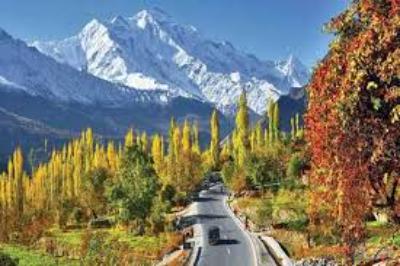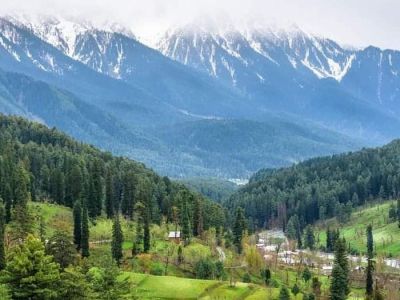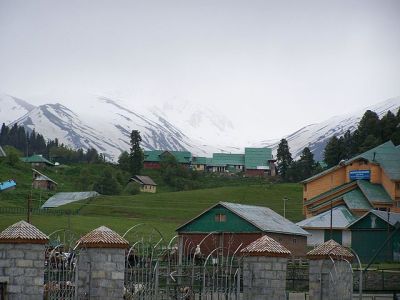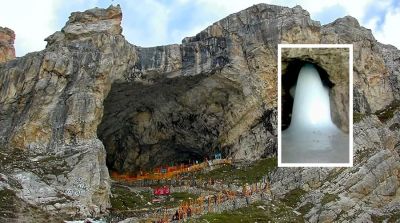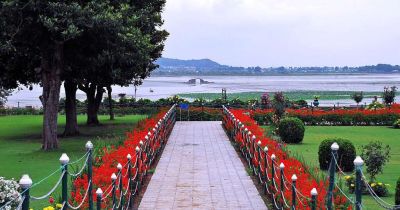A Chronicle of Kashmir's Ancient Literature
Kashmir, often referred to as "heaven on earth," is not only famous for its breathtaking natural beauty but also for its rich cultural heritage. One aspect of this heritage is the ancient literature that has been a part of Kashmiri identity for centuries. In this blog post, we will take you on a journey through the chronicles of Kashmir's ancient literature, exploring its origins, themes, and impact.
The Origins
The origins of Kashmiri literature can be traced back to the ancient Sanskrit texts, which were brought to the region by scholars and philosophers. The advent of Buddhism in the 3rd century BCE also played a significant role in shaping the literary traditions of Kashmir. The teachings of Buddha were not only influential on religious discourse but also on the literary expressions of the people.
However, it was during the medieval period that Kashmiri literature truly flourished. It was a time when the region attracted scholars, poets, and writers from all over India, leading to the integration of different cultural and linguistic influences in Kashmiri literature.
Themes and Styles
Kashmiri literature encompasses a wide range of themes, reflecting the diverse cultural, social, and political landscape of the region. One of the prominent themes is the celebration of nature, with the picturesque landscapes of Kashmir serving as a major source of inspiration for poets and writers.
Love and romance also occupy a prominent place in Kashmiri literature. The verses and poetry depicting the pain and longing experienced by lovers have become an integral part of the cultural fabric of the region.
Religion plays a significant role in the literary traditions of Kashmir as well. The verses of Lal Ded, a 14th-century mystic poet, highlight the spiritual quest and the search for ultimate truth. Similarly, the works of Sheikh Noor-ud-Din Wali, popularly known as Nund Rishi, emphasize the importance of spiritual enlightenment and the path of righteousness.
The writing style of Kashmiri literature is characterized by its lyricism and simplicity. The poets and writers of Kashmir have mastered the art of using metaphors, similes, and allegories to convey their thoughts and emotions. The verses are often accompanied by musical compositions, creating a mesmerizing effect on the listeners.
Influence and Legacy
Kashmir's ancient literature has had a profound impact both within and outside the region. It has served as a source of inspiration for artists, poets, and writers for centuries. Kashmiri poetry, with its deep emotions and philosophical insights, has influenced renowned poets and writers across different languages and cultures.
The works of Kashmiri mystic poets have also played a significant role in shaping Sufism, a mystical Islamic movement that emphasizes the inward journey of the soul. The spiritual philosophies and teachings of these poets continue to inspire seekers of spiritual enlightenment.
Today, the rich literary heritage of Kashmir is celebrated through various cultural events and festivals. The annual "Harud Literature Festival" brings together eminent writers, poets, and scholars from around the world to celebrate the essence of Kashmiri literature.
Conclusion
The ancient literature of Kashmir is a testament to the rich cultural heritage of the region. It reflects the soul of Kashmir, with its beauty, pain, and spiritual aspirations. The verses and poetry written by the Kashmiri poets continue to captivate and inspire generations, making them an invaluable part of the literary legacy of India. So, next time you visit this enchanting land, take a moment to delve into the world of Kashmiri literature and experience the magic it holds.
Feel free to share this blog post with your friends and fellow travel enthusiasts who would love to explore the fascinating world of Kashmiri literature!
Disclaimer : The information provided in this blog is for general informational purposes only. While we strive to keep the content accurate and updated, TravelSetu assumes no liability for errors or omissions. If you believe any part of this blog infringes your rights or causes concern, please notify us immediately at info[at]travelsetu[dot]com so that appropriate action can be taken.





